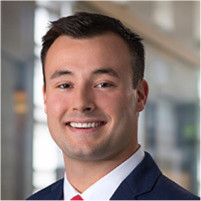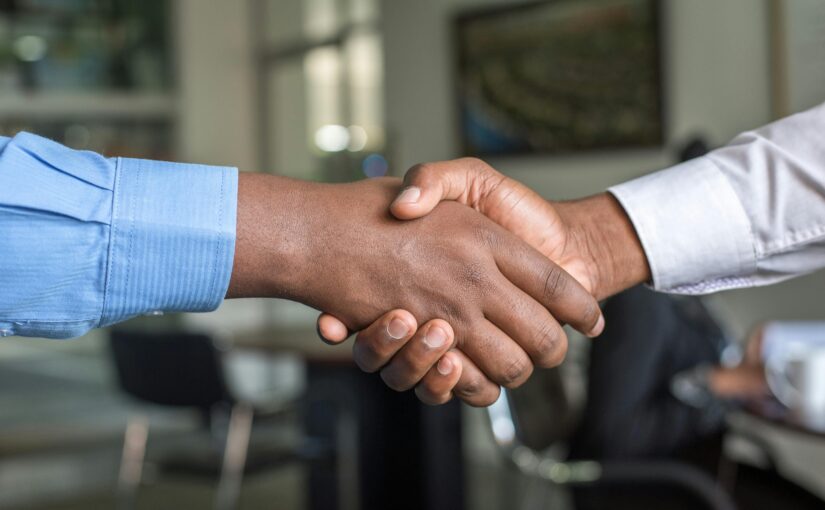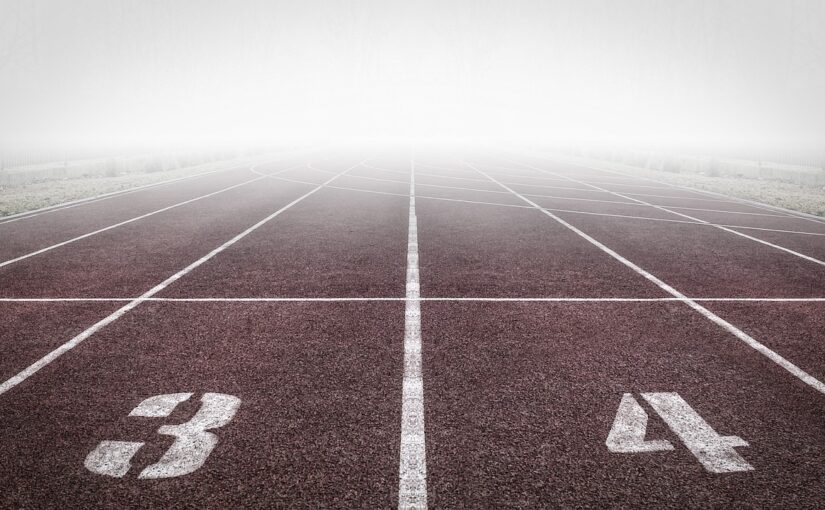Max Forer, Miller Nash LLP
Since the National Collegiate Athletic Association’s (NCAA) formation in the 1900s, student-athletes have been barred from profiting off their own name, image, and likeness (NIL). That prohibition stood for over a century, but on July 1, 2021, the NCAA introduced new bylaws, allowing for student-athletes to (a) profit from their own NIL through endorsement agreements and business ventures and (b) hire professional representation to facilitate such activity. In turn, high school associations around the country have also begun changing their rules to mirror the NCAA’s new approach, allowing high school athletes to profit from their own NIL as well.
These changes, along with new state laws, have opened an estimated $14 billion marketplace. But NIL deals are not one-size-fits-all; traditional deals used for professional athletes may not work for student-athletes, and NIL deals must conform to multiple NCAA, state laws, and institutional standards. NIL agreements are still governed by several rules, requiring careful consideration to protect brands, students, and schools alike. In this article, we discuss the legal history behind these recent changes, the laws and rules that apply to NIL deals, practical guidance on NIL deals for Oregon lawyers, and best practices for NIL deals generally.
Case and legislation history of NCAA and NIL
One of the initial cases central to the history of the NCAA and NIL is NCAA v. Board of Regents of the University of Oklahoma, 468 U.S. 85 (1984), which challenged the NCAA’s constraints on colleges negotiating directly with television channels ABC and CBS. The court ruled that the NCAA’s restrictions violated the Sherman Act, effectively releasing television rights to individual athletic conferences. Although the court ruled against the NCAA, Justice Stevens noted that the NCAA played a critical role in maintaining amateurism in college sports, suggesting that antitrust deference or immunity was required to uphold this revered tradition.
Fast-forward about thirty years to O’Bannon v. NCAA, 802 F.3d 1049 (9th Cir. 2015), where former UCLA basketball player Ed O’Bannon challenged the NCAA’s use of student-athletes’ images for commercial purposes without compensation. The Ninth Circuit held that antitrust laws applied to NCAA rules, but that restricting compensation had pro-competitive effects in integrating academics with athletics and promoting amateurism. The court ultimately found that raising the cap on compensation to the full amount of the costs of attending college was a substantially less restrictive alternative means of accomplishing this pro-competitive purpose.
After these rulings, the action shifted to state legislatures. In September 2019, California passed the Fair Pay to Play Act, Cal Educ. Code § 67456, allowing student-athletes to hire agents and profit from their NIL. This legislation sparked similar legislative efforts in multiple states, pressuring the NCAA to respond. Florida was next to pass an NIL law in June 2020 that would become effective July 1, 2021. This accelerated the NCAA’s timeline to act and led over twenty states to enact NIL legislation prior to July 1, 2021, ensuring that their student-athletes could also benefit from NIL activity and keeping up with what would be an obvious recruiting advantage.
Meanwhile, NCAA v. Alston, 594 U.S. 69 (2021), reached the U.S. Supreme Court and was decided on June 21, 2021. In Alston, Division 1 student-athletes argued that the NCAA’s restrictions on non-cash education-related benefits violated antitrust laws. The court agreed that the NCAA’s distinction as an amateur product was a pro-competitive defense to antitrust law since it offered wider consumer choice beyond professional sports, but the court ultimately ruled in favor of the plaintiffs, finding that reasonable adjustments to education-related benefits as detailed in the district court’s injunction would not undermine the NCAA’s amateurism. This ruling led to a more expansive package of education-related benefits available to student-athletes today, including graduate school scholarships, postgraduate internships, study abroad programs, computers, tutoring services, and cash awards for academic achievement limited to $5,980 per year, referred to now as “Alston awards.” While the court’s ruling narrowly addressed restrictions on education-related benefits, Justice Kavanaugh’s concurring opinion seemed to challenge the restriction of other forms of student-athlete compensation and also raise serious questions under the antitrust laws under this amateurism defense, asserting in the last line of his opinion, “The NCAA is not above the law.”
Soon thereafter, the NCAA passed interim NIL rules and policies allowing NIL activity, effective July 1, 2021. Although often mistaken as permitting NIL activities due to the timing of subsequent regulation reform, the holding in Alston only invalidated NCAA restrictions on education-related benefits; the Supreme Court has yet to address the NIL issue itself. Nonetheless, the Alston ruling, combined with new state NIL laws, pushed the NCAA to proactively adopt a more permissive approach to NIL activity in place of existing restrictions.
The NCAA has faced a myriad of other litigation since its NIL rules went into effect, many of which haven’t gone in the NCAA’s favor. In Tennessee v. NCAA, No. 3:24-CV-00033, 2024 U.S. Dist LEXIS 32050 (E.D. Tenn. Feb. 23, 2024)[1], the court issued a preliminary injunction, barring the NCAA from enforcing its rules against third-party companies contacting student-athletes during the recruitment stage. The court’s decision temporarily allows for student-athletes to negotiate and enter NIL deals prior to committing to a university. Recently, in Johnson et. al. v. NCAA, No. 22-1223, 2024 U.S. App. LEXIS 16953 (3rd Cir. 2024), the Third Circuit addressed whether student-athletes’ amateur status precludes them from bringing a claim under the Fair Labor Standards Act (FLSA), holding that student-athletes may bring such a claim and offering a new test[2] for the district court to apply in assessing whether they are in fact FLSA employees.
The NCAA’s rules further evolved in Ohio et al. v. NCAA, No. 1:23-cv-100, 2023 U.S. Dist LEXIS 225837 (N.D. W. Va. Jan. 19, 2023), where seven plaintiff states sought a preliminary injunction against the NCAA’s enforcement of a transfer rule requiring student-athletes transferring between Division 1 schools to wait a year before competing in games. The court granted the preliminary injunction, agreeing that the rule was an unreasonable restraint of trade in violation of §1 of the Sherman Act. After the U.S. Department of Justice joined the suit in January, the NCAA and DOJ reached a settlement that permanently bars the NCAA from restricting transfer eligibility. Additionally, the NCAA and its Power Five member conferences have tentatively agreed to a landmark settlement in House v. NCAA, Nos. 4:20-cv-03919 CW; 4:20-cv-04527 CW, 2021 U.S. Dist. LEXIS 206712 (N.D. Cal. Feb. 25, 2021). This settlement awards $2.8 billion in back damages to current and former student-athletes dating back to 2016, and it establishes an NIL payment system by which schools can pay up to 22 percent of their average athletic department revenues to current student-athletes for their NIL pursuant to an exclusive or non-exclusive license and/or endorsement agreement, totaling approximately $23 million per year.
Key rules of NIL arrangements
Oregon lawyers have three key areas to consider when exploring NIL contracts and arrangements:
-
- Other states’ laws: As of August 2024, over twenty states have NIL laws or executive orders, each with their own wrinkles. Generally, these laws prevent educational institutions and the NCAA from restricting student-athletes’ rights to earn compensation for their NIL, with various states implementing additional provisions. Texas, for example, precludes deals involving alcohol, gambling, adult entertainment, and cannabis. In California, companies are prohibited from signing student-athletes to an endorsement deal if the student-athlete’s team has a preexisting corporate agreement in the same industry. In Virginia, institutions are permitted to compensate student-athletes directly for the use of their NIL.
- Institutional policies: Educational institutions often have their own rules governing NIL opportunities, and many state NIL laws prevent student-athletes from entering NIL contracts that conflict with team rules or existing institutional agreements. Schools can also enforce general conduct codes. For instance, Portland State University requires student-athlete NIL deals to adhere to the university’s student conduct code, presumably barring agreements with companies promoting alcohol, tobacco, or cannabis products.
- NCAA rules: The NCAA rules continue to prohibit improper benefits (e.g., contracts without a quid pro quo), compensation for athletic participation or achievement, and educational institutions providing NIL compensation, although that may soon change under the proposed House Violating these rules can render a student-athlete ineligible and unable to compete, leading to potential public relations disasters for both the brand and the college.
Practical guidance on NIL for Oregon lawyers
The NIL industry offers a fresh marketing opportunity for businesses and lawyers in Oregon, especially those tied to sports, fitness, or college demographics. Lawyers advising clients on NIL deals must navigate state restrictions and policies.
ORS § 702.200 prohibits universities and athletic associations (the NCAA) from preventing or restricting the rights to (a) earn compensation for use of a student-athlete’s NIL and athletic reputation or (b) hire professional representation or an athlete agent. The law further bars universities and the NCAA from taking any retaliatory or penal action against students for exercising these rights. The law provides for several other standards, mostly mirroring similar regulations, including that a college or university may not pay a student-athlete directly for use of their NIL. One point of departure from the NCAA guidelines is that a person or entity who pays a student-athlete for use of their NIL may condition payment on that student-athlete’s attendance at a particular school.
Any lawyer receiving compensation from NIL deals with student-athletes should also be familiar with the Uniform Athlete Agents Act, ORS § 702.001. The law identifies athlete agents as anyone who recruits or solicits a student-athlete to enter into an “agency contract,” an agreement in which a student-athlete authorizes a person to negotiate or solicit, on behalf of the student-athlete, a professional sports services contract or an endorsement contract. An athlete agent can be someone who, for compensation or in anticipation of compensation in relation to a student-athlete’s participation in athletics, serves the student-athlete in an advisory capacity on matters related to finances, business pursuits, or career management decisions. Athlete agents could also manage the business affairs of athletes by helping with bills, payments, contracts, or taxes. Under this final definition, one would be considered an athlete agent if they provided these services free of compensation but gave the student-athlete consideration in anticipation of representing them in the future for purposes related to their participation in athletics.
A lawyer will likely not be acting as an athlete agent by solely negotiating an NIL deal unless they are paid like an agent and provide agent-like services. Oregon lawyers should be prepared to stay informed on developing case law in the space and comply with evolving state laws as well as the NCAA regulations and other states’ laws to determine for themselves if they are acting as a lawyer or an agent.
Many businesses will be looking to tap into this growing industry. Most NIL contracts will involve student-athletes primarily known in areas around their college. This limited market reach has two important implications. First, the cost of NIL deals is typically much less in comparison to other professional athlete endorsements, allowing businesses to experiment with NIL deals without significant investment and allowing some businesses access to athlete endorsements for the first time. Second, these local endorsements can align well with advertising efforts targeted at specific markets, offering better and more streamlined value. As businesses can take various approaches to securing NIL deals, lawyers should evaluate any proposed NIL deals to ensure compliance with applicable rules and laws.
Counsel can also help clients establish formal policies governing NIL deals, specifying permitted arrangements and required information for review and approval, which could also lead to uniform training and sample forms. Counsel might also advise clients on establishing special funds to sign NIL deals directly with student-athletes. In any scenario, it’s important to consider if the client’s agreements allow marketing funds to be used to cover the cost of supporting NIL efforts.
Tips and traps
While NIL rules and best practices will continue to evolve, consider the following tips and traps:
-
- Know the rulebook. Certain NCAA bylaws still apply to student-athletes and NIL deals. For instance, a contracting party cannot provide something of value for free to the student-athlete. To avoid this otherwise “impermissible benefit,” the student-athlete will need perform some service in return (e.g., make a social media post, attend an autograph session, do a photo shoot, etc.) to properly receive compensation.
- Keep it simple. NIL contracts should use plain English. Student-athletes will often sign NIL contracts without representation, so clarity is crucial to allow a student-athlete to understand what they are signing.
- Exercise caution with international players. International students on visas risk losing their immigration status by performing NIL deals in the United States. F1 visas largely bar off-campus employment, and U.S. Immigration and Customs Enforcement (ICE) has not provided clear guidance about NIL deals for international student-athletes. Even creative “solutions” may still expose international student-athletes to risk of visa revocation.
- Avoid school ties. Student-athletes cannot use their educational institution’s trademarks in NIL activities without consent from the institution. They also cannot use school facilities or participate in NIL activities during team events without prior written consent from the athletic department.
Given the nascent and evolving nature of the NIL legal landscape, lawyers who represent brands, schools, or students in NIL deals must stay current, as the downsides of getting it wrong can be significant. ♦
[1] Commw. of Va. joined the State of Tenn. as a plaintiff in this action, and they were recently joined by the State of Florida, the State of New York and the District of Columbia.
[2] Holding that “college athletes may be employees under the FLSA when they (a) perform services for another party, (b) ‘necessarily and primarily for the [other party’s] benefit,’ Tenn. Coal, 321 U.S. at 598, (c) under that party’s control or right of control, id., and (d) in return for ‘express’ or ‘implied’ compensation or ‘in-kind benefits.’”


